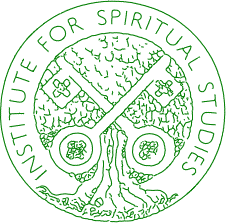
Seminar 7:
The Cuckoo's tale, or, where do we belong?
Introduction to the 2001 seminars
Late Addition to the Program 2001 Seminars
1 - St Columba: The taking of a journey
and transformation ... 2 - Australia and a spirituality of
place 3 - Early christian mosaic art: A nearly
forgotten treasure store 4 - John Henry Newman (1801-1890) 5 - Ecumenical vespers for the vigil of
Pentecost 6 - An introduction to Eastern Christian
spirituality 7 - The cuckoo's tale, or, where do we
belong? 8 - Vespers for the Feast of St Elias at
the Carmelite monastery 9 - Sufism: The spiritual dimension of
Islam 12 - God's in His temple: All's right
with the world
The question of authority in the Anglican
Communion
(Archbishop Peter Carnley, July 10)
(Carol O'Connor, March 17)
(Dr Katharine Massam, April 3)
(Rev Ron Browning, May 16)
(Robin Sharwood, Austin Cooper & Ian Breward, May 26)
(June 2)
(Fr Gregory Tillett, June 5)
(Dr Robin Grove, June 20)
(July 20)
(A/Prof Abdullah Saeed and Rehda Ameur, August 8)
(Rev Michael Hough, October 17)
Wuthering Heights is sometimes spoken of as a "mystical" novel. It is certainly a very strange one. For although plenty of nineteenth-century stories draw on a supernaturally coloured language (representing human lives through talk of "God", "devil", "angel", "paradise", "damnation", and so on), few are able to sustain the weight of such ideas. But Wuthering Heights brings us to ask if Catherine Earnshaw's assertions can be dismissed simply as overblown rhetoric.
Nelly, I am Heathcliff ... if all else perished, and he remained, I should still continue to be; and, if all else remained, and he were annihilated, the Universe would turn to a mighty stranger.
What are we to make of such claims? What kind of moral and spiritual force might the book have, 150 years after its publication? Emily Bronte, whose writing shocked and alarmed its first readers, has over the years been domesticated as the author of a "passionate" love-story. Perhaps it is time to consider her book in a wider, more challenging context.
| Date | Wednesday 20 June |
|---|---|
| Time | 7.30 - 9.30 pm |
| Venue | St Peter's, Eastern Hill, Melbourne |
| Cost | $15 (includes light refreshment) |
Conductor: Dr Robin Grove,
Senior Lecturer in English Literature,
University of Melbourne,
co-editor of The Critical Review
Authorized by the Vicar
(vicar@stpeters.org.au)
and The Institute for Spiritual Studies
(iss@stpeters.org.au)
Maintained by the Editor
(editor@stpeters.org.au)
© 2001 The Institute for Spiritual Studies